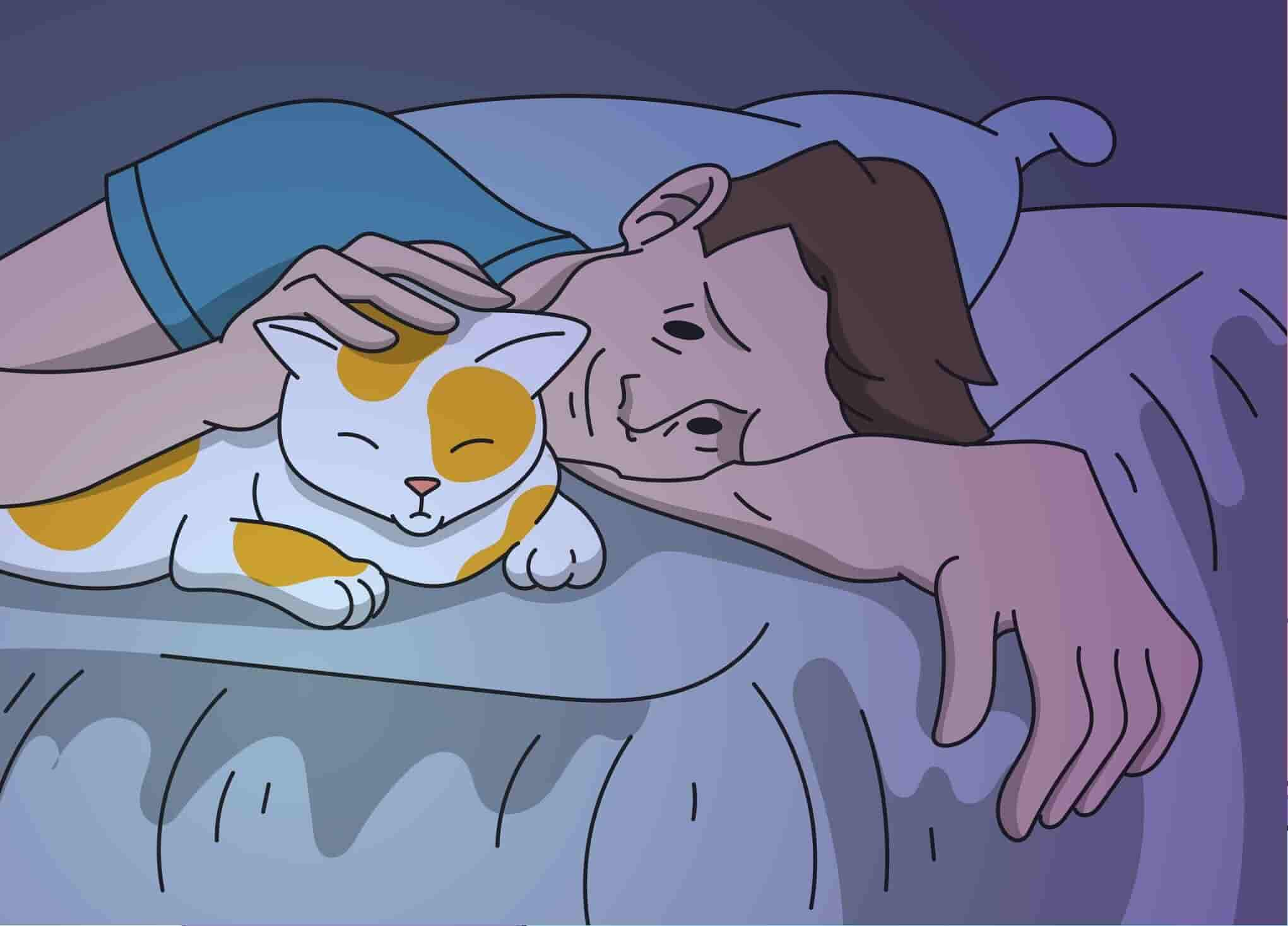If you are a cat lover, the mere existence of felines being their unique selves is likely to bring a certain degree of comfort. But how exactly do cats view their human’s emotions? More specifically, can cats tell when you’re sad, depressed, or anxious? Consequently, how do they respond if and when they do recognize these feelings?
When it comes to comforting humans, dogs are the species that are more commonly known to be a shoulder to cry on, with their reputation of being social and loyal companions as well as their desire to please their fur parents.
Meanwhile, cats may have been unfairly represented as being oblivious to human emotions, as can be seen in countless memes across the internet.
Stop Googling - Ask a Real Vet
However, studies have shown that cats can also recognize human emotions, and they are able to alter their behavior depending on the emotions that they perceive.
While the emotional perception of cats may not be as commonly regarded as that of dogs, existing research shows that they do have a general sense of emotions and respond in their own way, while benefiting their human companions.
Do Cats Know When You Are Sad?
You might have wondered - can cats sense emotions such as sadness?
Based on a study regarding emotion recognition in cats, it was demonstrated that cats are able to recognize conspecific as well as human emotions through auditory and visual observations.
However, they may perceive things from a different angle. Cats are able to sense sadness in a way that they associate the visual and auditory signals of human sadness such as frowning and a listless voice with how they are addressed or treated whenever their human is in a sad state.
Although cats are known to be independent and may not be as social as dogs are, they do form ties with their colony in the wild. When it comes to your home, you are considered as part of your cat’s colony so they recognize the importance of emotional signals in living harmoniously with you as their furparent.
Meanwhile, how do you know if your cat recognizes that you’re sad or they just want to be fed? According to the animal behaviorist Shadi Delshad, it helps to be observant about how your cats behave through time. For example, if you notice your cat coming over whenever you’re feeling down, it’s likely that they know how your are feeling.
Humans, in turn, should also be attentive to their pets. Owners can understand their cats' feelings and emotions through their body language.
Monitoring your cat will be much easier with a pet camera such as the Petcube Cam 360. Its HD and innovative features allow you to observe your cat even in times when you’re away.
Sometimes body language can help diagnose a disease in your four-legged friend. For example, your cat's eyes have inflammation or your cat has been looking depressed for several days. With a subscription to the Pet Emergency Fund for less than $1/day, you can consult a certified veterinarian about your observations anytime and anywhere. It is an alternative pet insurance that can also cover your bills in case of some emergency.Such insurance for your kid will be a great thank you for their devotion and love.
To help you prepare for unexpected situations, we are offering an exclusive 27% off on Pet Emergency Fund subscriptions if you follow this link.
Can Cats Sense Depression?
It appears that cats can sense human moods as well as depression. Cats are observant and intuitive, and this allows them to understand emotional cues from humans. So when you are depressed, they can sense that too.
In particular, cats may come in closer proximity when their fur parents are depressed. Some even purr and rub themselves more once they sense that their human is depressed, but it also depends as cats have different personalities too and may have their own ways to adjust their behavior when you are depressed.
Can Cats Sense Anxiety and Anxiety Attacks?
Research has demonstrated that cats can sense anxiety and anxiety attacks as well. The study by Animal Cognition showed that cats are looking at their owners for signals, or what is known as “social referencing”.
In the study, they invited a number of cat-and-owner pairs for a social experiment. What they did was brought the pairs inside a room that contained fans with streamers tied on it, with the intention of bringing an element of anxiety and uncertainty. Half of the humans were instructed to speak to their cats in a happy tone while looking at their cats and the fan as well.
Meanwhile, the other half was instructed to speak to their cats in a fearful way. The findings show that whether a happy or an fearful tone was used, 80% among cats were seen looking at their owners first before trying to determine how to act towards the fan. At the same time, many of the cats based their behavior on the disposition of their owners at that time.
This study shows that cats respond functionally to their owner’s emotional stimuli when their owner showed “anger” or “anxiety”, and their stress levels were higher as compared to when they were shown “happiness”.
In a research made by Nottingham Trent University, the findings show that cats are able to determine when their humans are anxious or stressed. Apart from this, they can also mirror their human’s emotions and well-being.
Do Cats Try To Cheer You Up?
The results above show how cats detect and interpret the emotional cues of their social circle, whether conspecific or human. Yes, cats do engage in social behavior and form an enduring bond with their humans, which is partly dependent on their human’s emotions.
The findings demonstrate that as cats became domesticated, they have developed cognitive and social skills in understanding humans’ emotions to be able to behave accordingly in response to their human’s cues in communication and expressing emotions.
In addition to this, cats are intuitive and can understand the moods and emotions of their humans. More specifically, they engage with their humans more often when they are sad or depressed, and they approach them more frequently when their humans are anxious or agitated.
They may do so in various ways but some of these ways include: looking at you, sitting near you, rubbing themselves against you, and purring (which can actually calm you down and help lower your blood pressure). In fact, for cats who have bonded with their humans, they are great therapy animals because of their ability to calm their human companions.
During times when you’re away and missing your cats, Petcube Play 2 may help. Apart from its HD and wide angle camera features, it has 2-way audio and laser toy features that allow you to play and interact with them as if you’re physically there.
Summary
Ultimately, for cats, understanding the emotional cues of their humans is an essential factor in being able to provide balance, maintain a healthy relationship with their colony (to which their fur parents belong), and to strengthen the interspecies bond between cats and their humans.

Was this article helpful?
Help us make our articles even better









